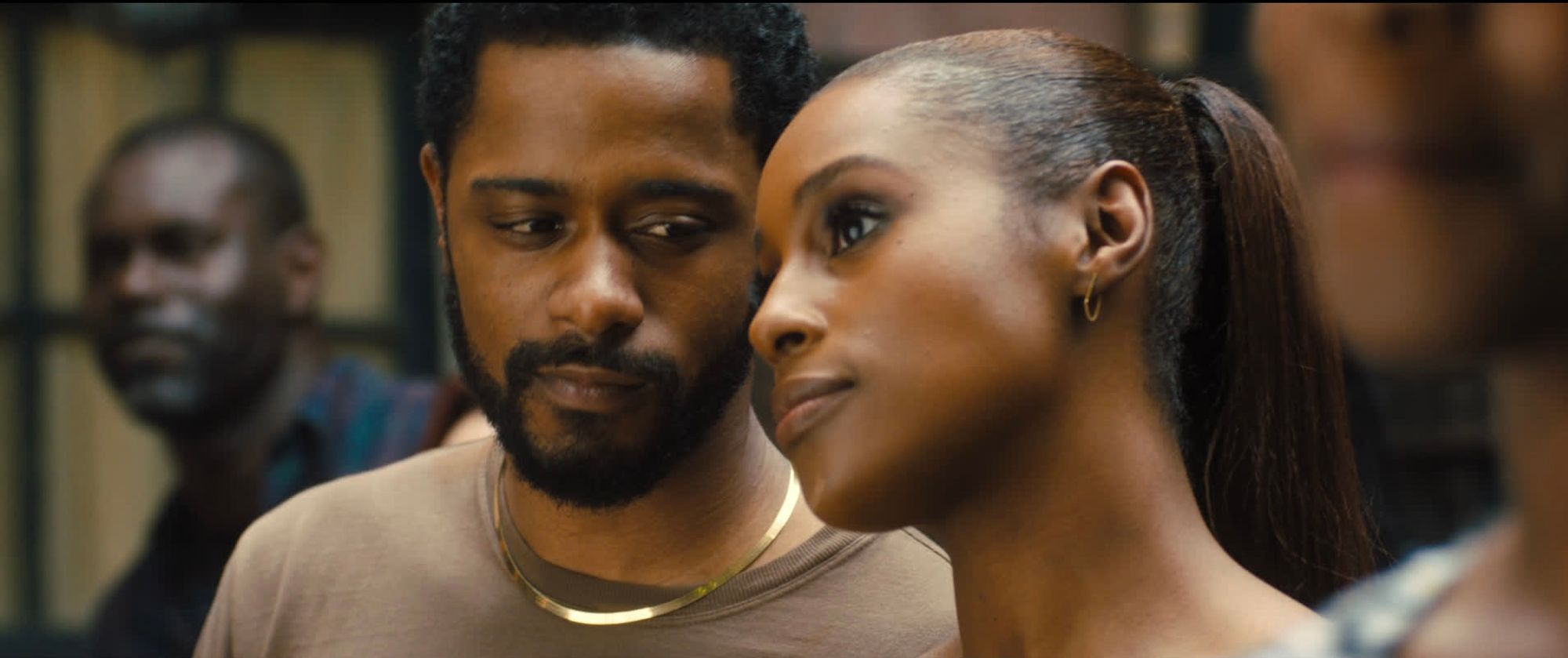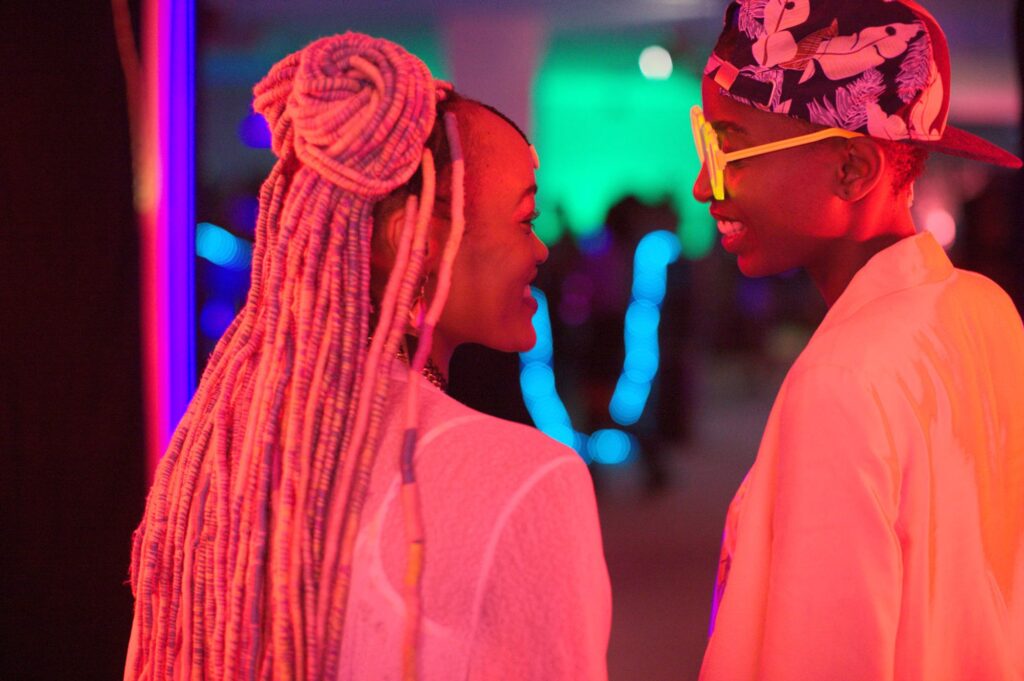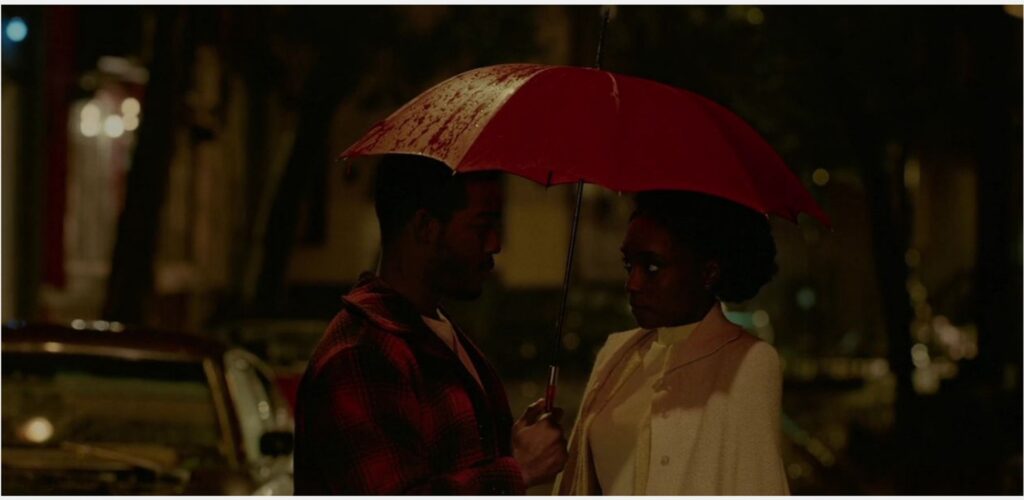Black Love Through the Eyes of Independent Cinema

In a world filled with both affection and adversity, three independent films offer a raw exploration of Black love amidst societal strife.
- ‘The Photograph’ (2020), dir. Stella Meghie
In “The Photograph,” renowned photographer Christina Eames passes unexpectedly, leaving behind her estranged adult daughter, Mae, grieving, vexed, and full of questions. Upon finding her mother’s photograph along with a few letters she’d written, Mae is able to delve into Christina’s early life in the 80s. Her research causes a surprising romance with Michael, a budding journalist working on a story about Christina.
In flashbacks, Christina is impassioned about her career, telling her lover Isaac, “I love you, but my greatest accomplishment cannot be cooking your dinner.” This proclamation—claiming her independence in a society that’s oppressed Black women for years—is the form of self-love that Black women need to see on screen.
With Christina prioritizing her career over others, Mae’s views and approach to love is with walls up. She’s scared to open herself to a relationship with Michael in fear of it not working out long distance, which interferes with her happiness. By the end, she chooses to be vulnerable: “I just want to be close to you as much as possible. I don’t wanna be practical, I wanna figure it out, and I don’t want so much time to pass that we can’t come back.” And like all Black women—like all Black people—deserve, Mae and Michael get their happy ending. “The Photograph” especially does a good job of exemplifying Black love because it doesn’t rely on one-dimensional stereotypes. Instead of portraying Mae as the “strong Black woman,” the film allows her to be fully human with Michael.
Where to watch: Available through subscription on Peacock, Hulu, and Amazon Prime Video

- ‘Rafiki’ (2018), dir. Wanuri Kahiu
The groundbreaking “Rafiki” explores the courageous love between Kena and Ziki, two girls of opposing political families, as they defy societal expectations in their conservative Kenyan community.
The film is a refreshing take on the love between Black lesbians. The portrayal of Kena and Ziki’s relationship does not shy away from the reality of what it means to be in a queer relationship in an unaccepting society, as the girls are met with hostility and violence. Yet their love is still passionate, shown through their shared aspirations, stolen touches, and secret rendezvous.
It’s no secret that representation of lesbians in the media is lacking. More often than not, women-loving-women relationships (and Black women, in general) are hypersexualized and nothing is left to the imagination. “Rafiki,” however, breaks away from tradition through the use of camera work, where Kena and Ziki’s intimate moments are solely implied.
What is striking most of all about this independent film, banned in its own country, is its hopeful ending; something that is not depicted often in many lesbian films. It celebrates the notion that love is love, and can prevail.
Where to watch: Free on Tubi & available through subscription on Amazon Prime Video

- ‘If Beale Street Could Talk’ (2018), dir. Barry Jenkins
An adaptation of acclaimed writer James Baldwin’s novel, the film “If Beale Street Could Talk” tells the poignant story of Tish and Fonny, a young Black couple whose love is tested when Fonny is falsely accused of a crime in 1970s Harlem.
The film depicts Black love in all its authenticity; the deep connection between Tish and Fonny is beautifully conveyed through soft, lingering stares, subtle gestures, and intimate dialogue. In a society where racial tension and injustice cloak them every day, their love is unwavering, further enhanced by rich cinematography and a soul-stirring score.
“If Beale Street Could Talk” opens with these words from Tish, “I hope that nobody has ever had to look at anybody they loved through glass,” a powerful critique on what mass incarceration of Black men has on their loved ones. At only 19 years old, the character presents grace and devotion as she fights for Fonny’s release while carrying their unborn child.
Similarly to the other films, Black love is depicted not only via romance but also familial. Both Tish and Fonny are given absolute support from Tish’s family, especially Sharon, who’s a pillar of motherly force.
Where to watch: Free on Tubi & available through subscription on Peacock
Stream any of these romantic films during the remainder of this Black History Month to bear witness to unadulterated Black love.
